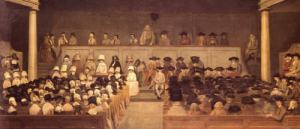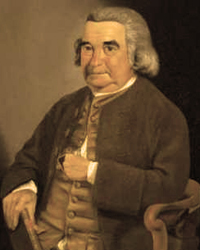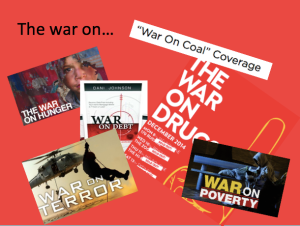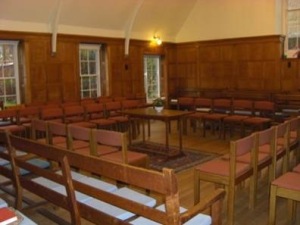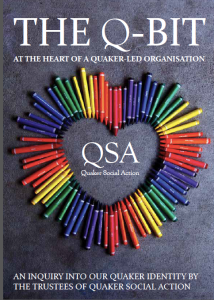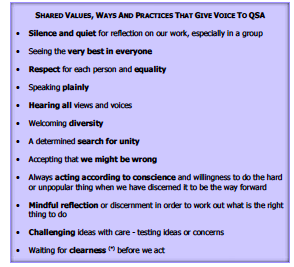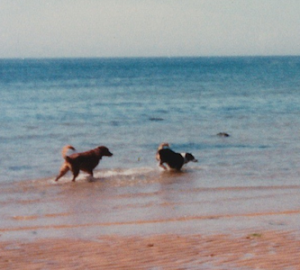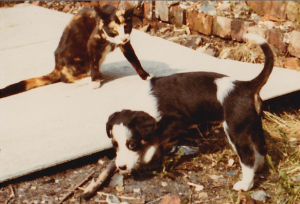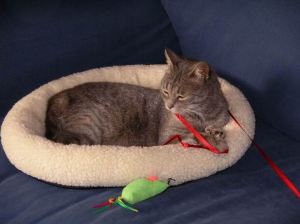So, it’s a cop-out; I’m using a foreign word for this because there aren’t that many to choose from. But it is a word in relatively common use in English.
What does it mean? A rough translation would be: the spirit of the age. Or, in more modern terminology: the current, established narrative that shapes the way we see the world.
And that is why I want to reflect on it.
How to Friends respond to the spirit of the age?
Early Friends
I’m not a Quaker historian, but my limited understanding of early Friends is that they were rebels; they rebelled against the spirit of their age because of it’s class system, inequality, power and dominance of church and aristocracy and so on.
The reason early Quakers established equality between men and women in the movement wasn’t just expediency although it was essential for them to ensure that everyone’s talent and contribution counted, it was also a deep belief in equality of all before God.
And it is possible to read Quaker history (though not always, I guess) as a history of rebellion against the spirit of the age.
Early Christianity
Early Friends also saw themselves as the direct descendants (in a way) of the early Church; the early Christian communities that were not yet part of a State Church; the communities where people pooled their resources and deliberately became equal in material means to support their belief in equality.
The crunch for the Church came when it was established as the official religion of the State. The whole of the following nearly 1700 years of history is littered with the detrimental consequences of this step; with the abuse of Christianity for power of the powerful and oppression of the powerless.
Early Friends (and many of the other groups of seekers of that era in England – and elsewhere at that and other times) reacted to the domination of a corrupt system that held ordinary people down.
What of today…
What is the spirit of our age? In the last few weeks there are a number of facets of this that have kept coming back to me:
First, there is that terrible word: aspiration; it has been hijacked by certain parts of the media. It has been hijacked by certain elements of our political discourse.
Just this morning, I was reading about one of the people running for the Conservative nomination for London Mayor, Soul Campbell. He says: ‘I look at the Conservatives and their ideology, and how they look at life is all about aspirational living and lifting yourself up.’ (The ‘I’, 24 June 2015, page 3)
Aspiration is seen in this narrative as purely individual; it’s about ‘lifting yourself up’; this may include your immediate family, you children, especially, but nothing and no-one else. In fact, the very possibility that others may be better at this and get further on career or property or housing ladder is the driver.
There is nothing about community in this; not about local community, not about the wider regional or national community; and certainly nothing about the global community.
It is the ideology that keeps migrants on boats or in detention centres in Italy and Greece and that permits our government to say: we won’t take them; nothing to do with us!
It is the ideology that wants to privatise everything, even publicly funded Housing Association housing because it feeds the aspiration of those lucky enough to have been allocated such housing – never mind those who haven’t and those who are still to come.
It is the ideology that is content to rob the poorest and most vulnerable in our society of the meagre basis of their living by cutting benefits.
It is the ideology that demands that everyone who wants to be seen as part of ‘the hard-working British families’ (another buzz word which is part of the spirit of the age) is available for work and working all of the time – so much so that GPs are supposed to work 7 days a week so that people who are sick don’t have to take time off work to go and see a doctor. What a crazy world!
And of course, what comes last in the priorities of this sort of thinking is the planet. Never mind that we have a major problem with carbon emissions – let’s make it easier to frack and harder to provide wind power. Why, because it makes money for the private sector. It allows them to follow their aspirations at the cost of the rest of us and the planet.
As I end this alphabet blog, I am left wondering how we can impact the spirit of the age? John Woolman believed firmly that slavery was wrong and that all that stemmed from slavery, all the wealth it created, all the products it made available were therefore not to be touched by those who wanted to abolish slavery.
British Friends, in their ‘minute 36’ of Yearly Meeting in 2015 (you can download and read the full minute here) have identified many of the things that are wrong with the spirit of our age, with the abuses of power, with oppression of the most vulnerable and with a whole raft of the wrong priorities set by our government. Let us find the strength to limit – if not to eliminate – the benefits we derive from these wrong priorities and let us find ways of making this known so that our stand can impact the spirit of tomorrow.
